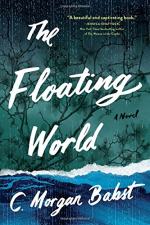|
This section contains 2,423 words (approx. 7 pages at 400 words per page) |

|
Racial Fatalism
In her novel’s treatment of race, Babst seems to suggest that racism in Katrina-era New Orleans is so deep-seated as to be impossible to transcend. This fatalistic attitude likely proceeds from national recognition of the effects of institutionalized racism in the aftermath of the hurricane; at the time, many attributed the slow and ineffectual local, state, and federal emergency responses to the fact that the majority of Katrina’s victims were impoverished blacks. The novel’s characters acknowledge this fatalism to varying degrees.
Vincent, who grew up in Jim Crow-era New Orleans, is most overtly aware of and pessimistic about racism in his place of origin. When Joe’s white neighbor attempts to tend to Vincent during one of the elderly man’s senile walkabouts, asking, “You sure you should be out here by yourself?” Vincent interprets the man’s behavior as patronizing racism...
|
This section contains 2,423 words (approx. 7 pages at 400 words per page) |

|




